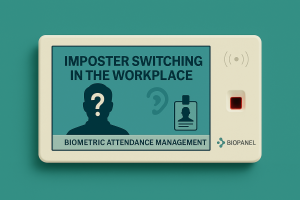In the fast-moving world of tech, “legacy software” often gets an unfair reputation. It’s a phrase that tends to trigger assumptions of outdated, clunky, slow, or obsolete. But the truth is, legacy systems in general are anything but old. They are refined, battle-tested, and in many cases, light years ahead of newer platforms when it comes to real-world performance, reliability, and depth of functionality.
Evolved Through Experience, Legacy systems aren’t static. They’ve been developed over years, even decades, based on the real, everyday needs of users. Every feature, shortcut, report, and module is the product of continuous improvement having been shaped by industry demands, customer feedback, and hands-on use in real-life environments.
Think of it like this. A legacy platform has spent years under the hood, absorbing insight, evolving with compliance regulations, and adapting to operational nuances that newer systems simply haven’t encountered yet.
Not Just Pretty on the Surface.
New platforms often come with a slick UI, clean animations, and trendy dashboards. And while a polished front end may look appealing, it doesn’t always translate into depth of capability. In some cases, once you get past the aesthetic, what you can find is a shallow framework, one that lacks the nuanced functionality, flexibility, and workflow maturity that a well-built legacy system can provide.
Legacy software has had time to learn the edge cases. It knows what happens when payroll schedules shift mid-week. It accounts for compliance across multiple regions. It integrates with the quirky systems that make your business tick. These are things no amount of clean design or low-code promises can replicate overnight. The Power of Integration and Interoperability which is another strength of established systems.
Legacy platforms have grown to integrate with multiple tools, databases, hardware, and external APIs creating rich ecosystems that newer systems often can’t match. They also come with robust security protocols, compliance certifications, and data governance processes that have stood the test of time—an area where many “new” systems are still finding their feet. It’s Not Either/Or, it’s Evolution. This doesn’t mean businesses should resist innovation or refuse to modernise. But it does mean we need to change how we talk about legacy technology. It isn’t a relic, it’s a foundation. The most effective digital transformations today happen when legacy and innovation work together, combining trusted functionality with modern interfaces, accessibility, and automation.
If your legacy system can continue to evolve with your needs and most do, it’s often more powerful to optimise it than to replace it with something flashier but less capable.
Final Thoughts
Legacy software is not old, it’s experienced. It’s the result of years of refinement, input, iteration, and trust. While the tech world often favours the shiny and new, real business performance is rooted in systems that understand your operations inside out. Before you trade in a proven platform for something untested, take a closer look under the bonnet. You might find that what’s being called “legacy” is actually your greatest competitive edge.
If you feel like your current workforce management software supplier is not evolving their platform, you feel like you are being left behind and want to look at a partner who is always innovating. Get in touch today: greg@biopanel.co.uk


